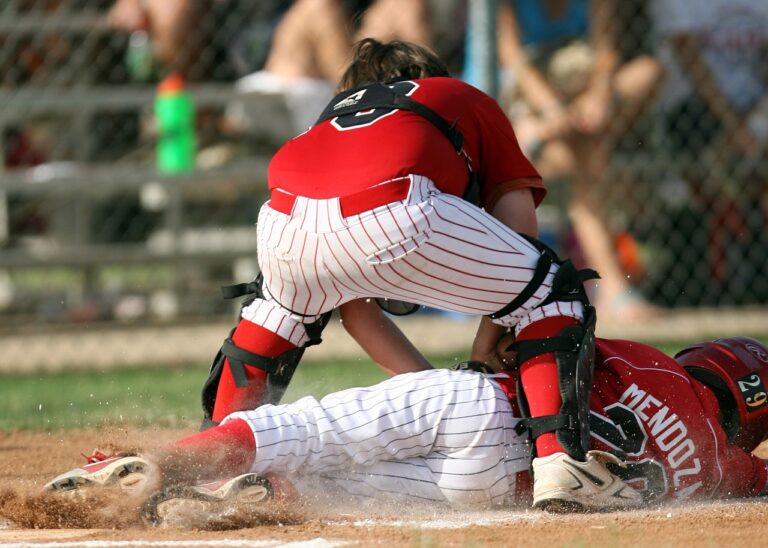Exploring the Role of Social Media Listening in IPL Crisis Management: All panel login, Mahadev book online, Get cricket id
all panel login, mahadev book online, get cricket id: Social media has become an integral part of our lives, shaping the way we communicate and share information. When it comes to crisis management, social media has proven to be a powerful tool for organizations to listen to their audience, assess the situation, and respond effectively. In the context of the Indian Premier League (IPL), social media listening plays a crucial role in managing crises that may arise during the tournament.
Understanding the Role of Social Media Listening in IPL Crisis Management
In a high-profile event like the IPL, the stakes are high, and any misstep can quickly escalate into a full-blown crisis. Social media platforms like Twitter, Facebook, and Instagram are often the first places where fans, players, and stakeholders voice their opinions, concerns, and grievances. By actively monitoring these platforms through social media listening tools, IPL teams and organizers can stay ahead of the curve and respond swiftly to emerging issues.
Key Strategies for Effective Social Media Listening in IPL Crisis Management
1. Monitor conversations: Keep a pulse on what fans, media, and other stakeholders are saying about the IPL on social media. By tracking keywords, mentions, and hashtags related to the tournament, teams can identify potential issues before they spiral out of control.
2. Engage with the audience: Responding to comments, addressing concerns, and engaging with fans in real-time can help defuse tensions and build a positive relationship with the audience. Social media listening enables teams to identify opportunities for proactive engagement and demonstrate transparency and accountability.
3. Identify influencers: Influencers play a significant role in shaping public opinion and driving conversations on social media. By identifying and engaging with key influencers, IPL teams can amplify their messaging, garner support, and manage the narrative during a crisis.
4. Analyze sentiment: Social media listening tools can help teams gauge the sentiment of conversations surrounding the IPL. By analyzing sentiment trends, teams can assess the impact of their actions, adjust their strategies, and make informed decisions to navigate through a crisis effectively.
5. Crisis response: In the event of a crisis, social media listening allows teams to gather real-time feedback, monitor developments, and tailor their responses accordingly. By using insights from social media listening, teams can craft a timely and appropriate crisis management strategy to address the situation effectively.
Best Practices for Leveraging Social Media Listening in IPL Crisis Management
1. Proactive monitoring: Stay vigilant and monitor social media channels regularly to stay abreast of emerging issues and sentiments related to the IPL.
2. Real-time engagement: Respond promptly to audience feedback, address concerns, and provide updates in real-time to demonstrate transparency and responsiveness.
3. Data-driven decisions: Use data and insights from social media listening to guide decision-making, assess the impact of actions, and refine crisis management strategies.
4. Collaborative approach: Foster collaboration among internal teams, stakeholders, and partners to coordinate crisis response efforts and ensure a unified front in managing the situation.
5. Continuous learning: Reflect on past experiences, gather feedback, and iterate on crisis management strategies to enhance preparedness and resilience for future crises.
FAQs
Q: How can social media listening help in managing reputation during a crisis in the IPL?
A: Social media listening allows teams to monitor conversations, identify emerging issues, engage with the audience, and respond effectively to manage reputation and mitigate damage during a crisis.
Q: What role do influencers play in shaping public opinion during an IPL crisis?
A: Influencers can influence public opinion, drive conversations, and amplify messaging on social media. By engaging with influencers, teams can shape narratives, garner support, and manage the perception of the crisis.
Q: How can IPL teams leverage social media listening to enhance crisis preparedness?
A: By proactively monitoring social media, engaging with the audience, analyzing sentiment, and crafting data-driven responses, IPL teams can enhance crisis preparedness, mitigate risks, and effectively manage crises as they unfold.
In conclusion, social media listening is a valuable tool in managing crises during the IPL. By actively monitoring conversations, engaging with the audience, analyzing sentiment, and crafting data-driven responses, IPL teams can navigate through crises effectively, protect their reputation, and maintain a positive relationship with fans and stakeholders. Adopting best practices and leveraging social media listening tools can enhance crisis preparedness and resilience, ultimately ensuring a successful tournament experience for all involved.







